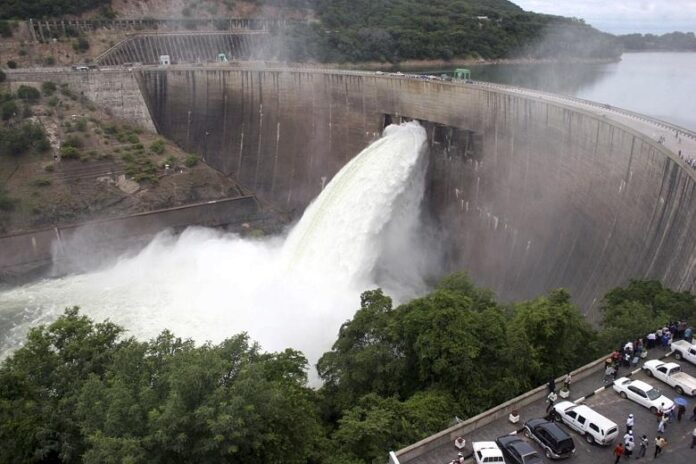The Zambezi River Authority (ZRA) has issued a stark update on the water situation at Kariba Dam, revealing a concerning decline in river flows and lake levels.
The alarming trend is attributed to the ongoing El Nino weather phenomenon, which has caused significantly reduced rainfall in the Zambezi River catchment area.
According to the ZRA, river flows at both the Chavuma and Victoria Falls gauging stations have shown a worrying decrease compared to last year and historical averages.
This decline in river inflows has directly impacted Lake Kariba, where water levels are receding instead of rising as they typically would during this time of year.
Below-average rainfall during the current season has severely restricted the amount of water entering the lake.
The El Nino effect further compounds the issue. El Nino disrupts normal weather patterns, leading to less precipitation across Southern Africa, including the Zambezi basin.
This lack of rainfall creates a domino effect, reducing river flows and ultimately causing a significant drop in Kariba’s water levels.
The ZRA has also provided technical details regarding the impact on Kariba’s Live Storage, the portion of the reservoir usable for hydropower generation.
With the current water levels, Kariba’s Live Storage sits at a precarious 14.16% of its capacity, raising concerns about potential impacts on power generation in the region.
“The effects of the El Niño weather conditions being experienced globally and over the Southern African Region in particular have continued to negatively impact the Zambezi.
“River inflows into Lake Kariba. This situation continues to greatly impact the Lake Kariba water levels.
“It is noteworthy that the lake level is lower during this period than was recorded last year during the same period.
“Furthermore, the lake level is currently receding, contrary to its historical hydrological performance where it should have been rising during this period of the year.
“The obtaining recession in the lake levels is mainly due to the below average rainfall received during the on-going 2023/2024 rainfall season,” the authority noted.
The ZRA’s update underscores the serious threat posed by El Nino-induced drought to the water security and hydropower generation capacity of the Kariba Dam.
The report serves as a stark reminder of the far-reaching consequences of climate change and the urgent need for sustainable water management practices.
